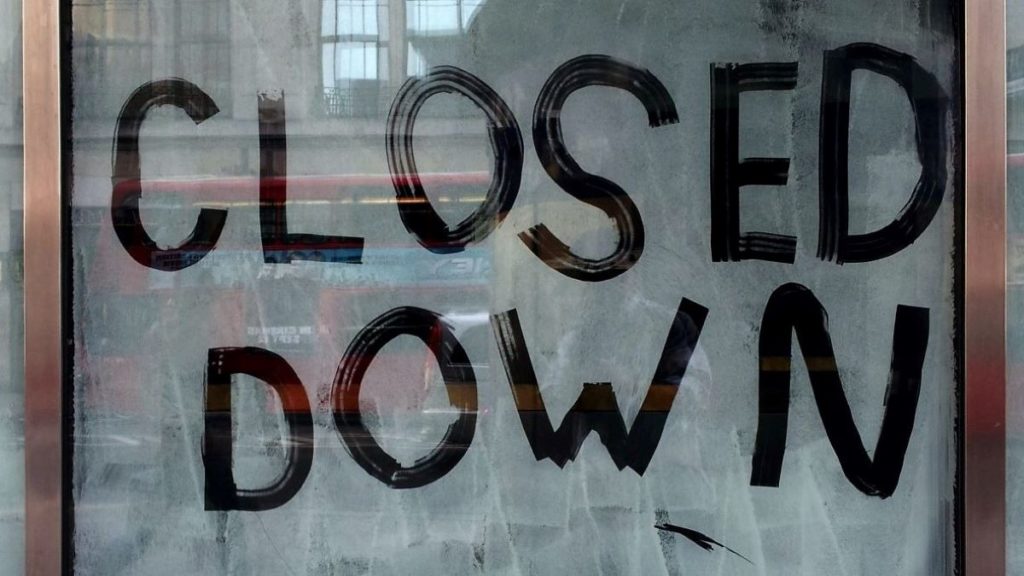Photo by Marco Bianchetti on Unsplash
Dealing with a business failure is mentally tough, but it’s even tougher if you aren’t secure in your financial life. With your primary source of income no longer available, and the looming debts you incurred while building the business from scratch, you may seriously consider filing for bankruptcy. Depending on judgment collection laws in your state, even your personal assets may be at stake.
Fortunately, there are a few steps and strategies that can help you recover financially—if not mentally—in the wake of a business failure.
Take Personal Inventory After a Business Failure
Your first step after the collapse of your business will be taking a moment to assess your personal inventory. What have you lost, personally, from the failure of the business? What does your future currently look like? Consider:
Sources of Income
Chances are, your business was your primary form of income, whether you relied on a salary or regular withdrawals of profit. If you have other backup sources of income (such as side gigs, rental properties, or other sources of passive income), tally them up. Then determine whether these can meet your current needs. Is there a shortfall? If so, by how much?
RELATED ARTICLE: AN INCOME CONVEYOR BELT: HOW TO BUILD PASSIVE INCOME
Loans and Debts
Did you take on any personal loans or personal debt for the business? Did you have any other existing loans? These can put a disproportionate financial burden on you if you aren’t careful.
Work with a Lawyer
Depending on your circumstances, it may be a good idea to work with a lawyer as you account for the failure of your business. They’ll be able to guide you on the tasks and responsibilities you’ll need to accomplish in the process of tying up loose ends.
They may also have recommendations for how to arrange the finances in a way that personally benefits you. Additionally, they can advise you on how to minimize the immediate consequences of your business closure.
Negotiate with Creditors
If you took on loans, or if you’re stuck dealing with your standing debt, you may need to negotiate with your creditors. Alternatively, you might need to arrange your debt in a way that minimizes its effects on your life.
The biggest issue with most debt is interest. Moreover, if you’re paying exorbitant interest rates and you’re unable to pay down your principal, the amount you owe after a business failure can grow exponentially.
One solution is to transfer your debt to a single low-interest source, if possible. Depending on your current levels of debt, your credit score, and other factors, this may or may not be a realistic possibility. Either way, you may be able to negotiate for a lower interest rate after a business failure. This is especially true if you’re having trouble making consistent payments.
Make Personal Budget Cuts
Your next step after a business failure could be to make personal budget cuts to get through this rough patch. If you’re dealing with limited income but your expenses remain the same, you’ll eventually find yourself coming up short. However, you can mitigate this and afford yourself more flexibility, by making budget cuts.
If your shortfalls are small, these can come in the form of a few minor sacrifices. You can cancel some of your entertainment subscriptions, cook instead of eating out, and get by that way. However, you may be forced to make bigger sacrifices, like moving into a smaller house or a different area of town, to increase your savings.
Pick up Extra Work to Recover from a Business Failure
Whether you love it or hate it, the gig economy can be a benefit if you’re dealing with the aftereffects of business failure. Rather than taking on an entirely new job or a full commitment, you can pick up side gigs and extra work as necessary to make ends meet.
Of course, this is only a short-term measure. In most cases, part-time work won’t be able to sustain you forever. It’s meant as a kind of buffer, keeping your financial health intact while you consider what to do next.
Consider Your Next Move
Once your finances are stable enough that you have some breathing room, you’ll need to think about your next move. For many failed entrepreneurs, the only real option is to start a new business, applying the lessons you learned in the first.
This may not be a wise move if your finances are stretched thin after a business failure. However, you can make up for this by starting a lower-cost business or finding more favorable methods of funding. Alternatively, you can start looking for full-time work, either along a previous career trajectory or a new one that interests you.
Think of Your Business Failure as a Fresh Start
For many entrepreneurs, a business failure is simply the mark of a new beginning. This is your chance to learn from your mistakes, capitalize on the connections you’ve made, and forge a new path forward. So take this time to seriously reflect on what you want from your career. Then head into your next professional journey with confidence.
For more thoughts about managing your business, whether the going is rough or it’s smooth sailing ahead, be sure to browse our blog often.


